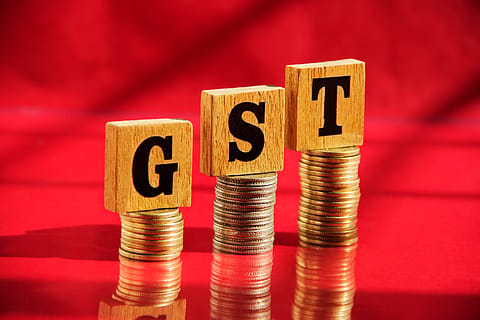GST rationalisation could spark ₹960 billion incremental demand: Report
The report estimates that the government’s net revenue reduction of ₹480 billion, resulting from the proposed GST rate cuts, should act more as a liquidity injection into the economy rather than a fiscal loss.

The proposed GST rationalisation in India could unlock a significant demand boost, with an estimated ₹960 billion flowing into the economy, according to a report by Elara Securities. The report highlights discretionary spending as the primary beneficiary, likely to capture around 50% of the incremental demand.
The report estimates that the government’s net revenue reduction of ₹480 billion, resulting from the proposed GST rate cuts, should act more as a liquidity injection into the economy rather than a fiscal loss. “With a fiscal multiplier of 2x, the demand impact could rise to ₹960 billion,” the report says. The implication is clear: what appears as a revenue sacrifice could emerge as a key driver for consumption-led growth.
Discretionary spending to gain most
Currently, consumer wallets allocate about 29% to discretionary spending, 32% to necessities, and 39% to obligatory expenses. However, the GST reform is expected to tilt incremental consumption towards discretionary categories such as fashion, QSR (Quick Service Restaurants), personal care, and electronics. The report estimates a shift of around ₹480 billion of the incremental demand into discretionary segments.
“This multiplier-led expansion has the potential to reset the consumption trajectory, speeding up a gradual recovery in discretionary segments, which have lagged in FY25,” said Karan Taurani, senior vice president at Elara Capital.
Fashion and general lifestyle categories are expected to account for nearly 42% of the discretionary spend boost, driven by premiumisation and digital penetration. Taurani points out that “online food delivery platforms and QSR chains, in particular, stand to benefit meaningfully, supported by both a consumption boost and lower input costs.”
For the QSR sector, the report highlights a potential EBITDA upgrade of up to 6.6% by FY27E, thanks to reduced GST on key inputs such as cheese and pizza bread. “QSR players are poised for accelerated recovery as the GST relief offers a 60–90 basis point margin cushion, helping offset recent pressure from value-led promotions,” adds Taurani.
Recommended Stories
In the beauty and personal care segment, platforms like NYKAA are projected to see a 100 basis points growth lift due to lower GST on essential personal care items, which constitute about 20-25% of their GMV.
Modest growth in necessities and obligatory segments
While discretionary categories steal the spotlight, necessities like utilities and medicals may see modest premiumisation-led growth, adding ₹192 billion to incremental demand. Obligatory expenses, which already dominate consumer spending, are projected to absorb around ₹288 billion of the incremental flows.
Elara Securities anticipates that despite the potential revenue and EBITDA boosts across sectors, consensus estimates for sales and profitability will largely remain intact. “A modest revenue surge may not trigger a proportionate rise in costs, with much of the upside likely flowing through to EBITDA,” the report says.
(INR CR)
Jubilant FoodWorks, Eternal, and Radico Khaitan are among Elara’s top stock picks, as their strategic alignment with evolving consumer preferences and market positioning make them well placed to capitalise on the demand boost.